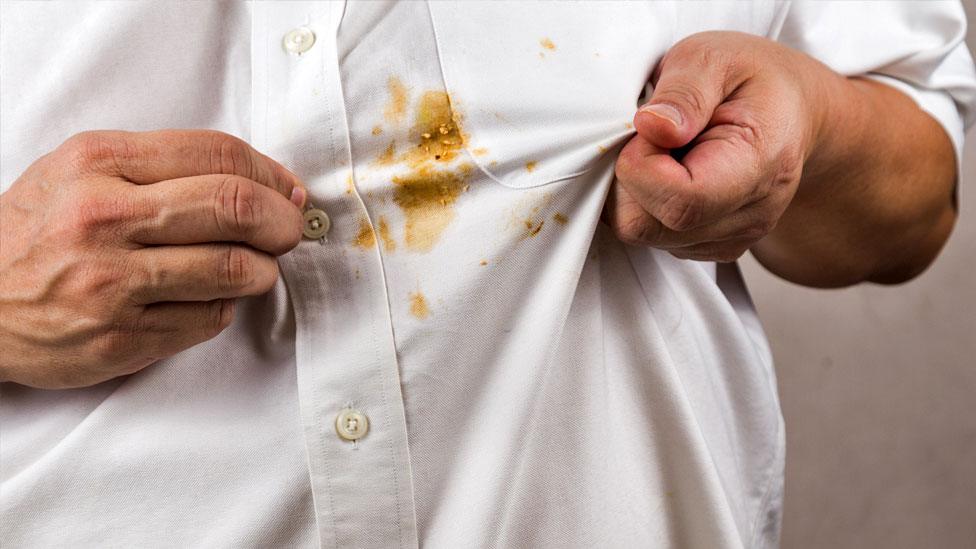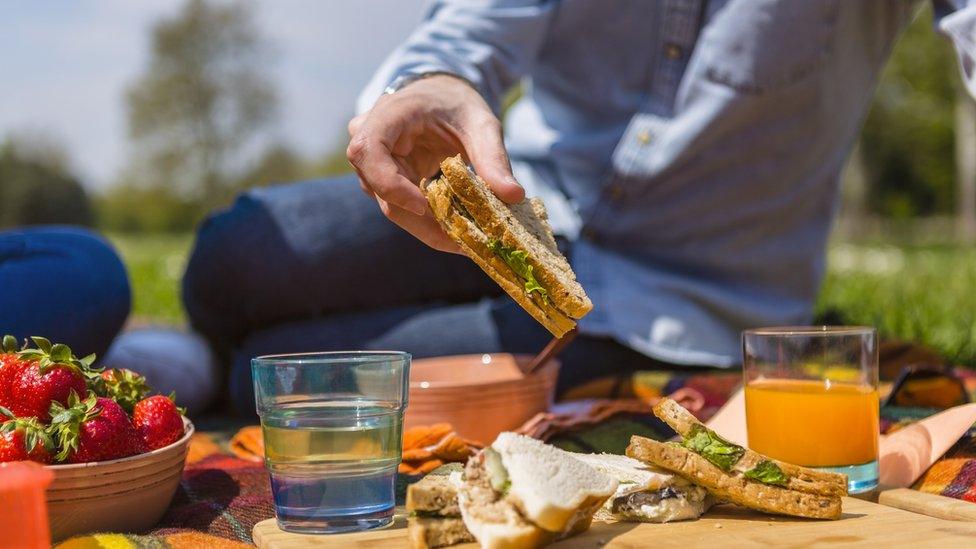Stain remover demand rises as distancing shrinks
- Published

Sales of the clothing stain remover Vanish have bounced back as people pay more attention to their appearance post lockdown, its manufacturer says.
Reckitt said the demand was directly linked to the reduction in social restrictions around the world "as market conditions normalise".
Sales of personal care products, such as hair removal cream Veet, also grew strongly in the first half of 2021.
But demand for its disinfectants, such Dettol and Lysol, began to slow.
It follows surging demand for bleaches and cleaners earlier on in the pandemic, although Reckitt said sales remained far higher than pre-Covid levels.
At this point in 2019 Dettol and Lysol made up 16% of Reckitt's revenue. They now account for a quarter of revenue.
"We are seeing different consumer behaviours depending on vaccine rollout rates, government advice and new waves," Reckitt said.
"Nevertheless, both brands [Dettol and Lysol] are more relevant with consumers than pre-pandemic and are therefore structurally better positioned to grow into new places and new spaces in the future."
It added that during the first six months of the year: "Vanish returned to growth as the reduction in social restrictions increased the demand for the removal of clothes stains."
Reckitt also said sales of its "intimate wellness" products had performed strongly compared with the first half of last year when government guidelines had "limited social activity".


Sales of fresh food surge
UK supermarkets have also reported seeing changes in consumer behaviour as lockdown restrictions are eased and the weather improves.
According to research firm Nielsen, in the four weeks to 17 July sales of fresh food soared as people had more opportunities to socialise with friends and family and to enjoy outdoor eating and drinking.
Delicatessen was the fastest growing category of food in UK supermarkets, driven by sales of rotisserie (up 43%), sandwiches (up 31%), freshly prepared fruit (up 27%) and prepared pasta salads (up 15%).
In contrast it said there continued to be a move away from cupboard food with packaged grocery sales falling 9%.

Accelerating inflation
Overall, like-for-like revenue fell at the consumer goods company in the first six months of the year by 4.5% to £6.6bn. Operating profit fell 16% to £1.4bn.
Reckitt also became the latest company to warn of inflationary pressures, which have accelerated in the second quarter of 2021 as economies have reopened and pushed up the cost of raw materials.
"Cost inflation accelerated in the second quarter and it will take time to offset this headwind with productivity and pricing actions being implemented in the back half of the year and early next year," said Reckitt boss Laxman Narasimhan
The company's comments echoed those of Dove soap maker Unilever, which last week cut its outlook citing higher raw material costs on everything from crude to palm and soybean oil.
Reckitt's share price tumbled by more than 8% in morning trading in London amid fears over the impact of inflation and the firm's slowing sales growth.
- Published6 May 2021

- Published18 June 2021
